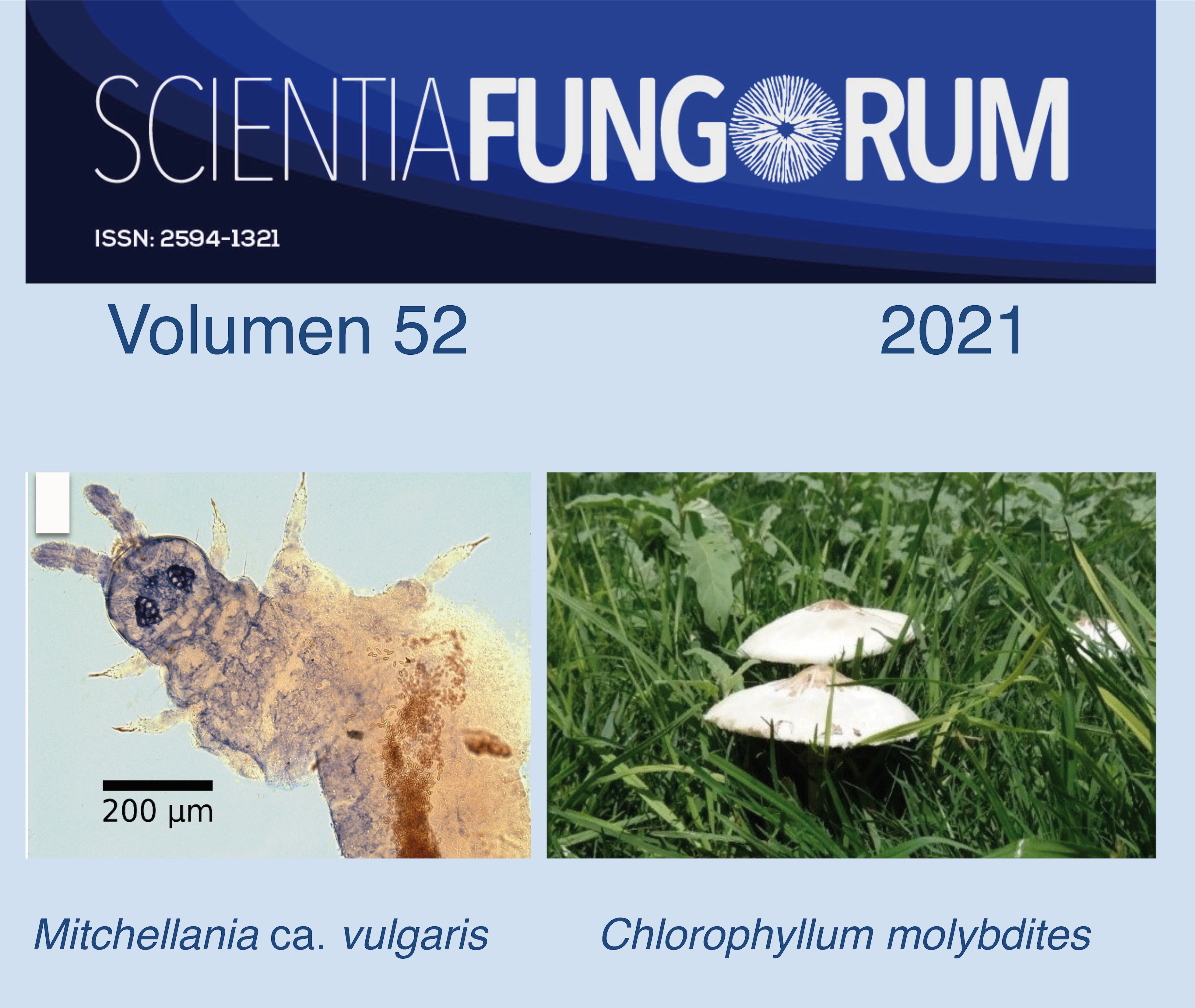Effect of substrate variation on the productivity of two strains of Pleurotus spp.
DOI:
https://doi.org/10.33885/sf.2021.52.1377Abstract
Background: Pleurotus is one of the best-known edible mushroom genera. In recent years there has been a marked interest in its commercial production, which has led to the search for substrates or mixtures that ensure high productivity.
Objective: To determine the effect of the main chemical components of substrates for the production of two strains of Pleurotus spp.
Methods: Different mixtures were made from corn cob, grass and coffee pulp, establishing 10 treatments, which were bromatologically analyzed. Two strains of Pleurotus spp. were cultivated. The Biological Efficiency (BE), Production Rate (TP) and Yield (R) were evaluated.
Results and conclusions: In both strains ECS-123 and ECS-1123, treatment 7 (100 % grass) obtained the highest values of EB (38.2 % and 48.8 %, respectively), TP (0.5 % and 0.6 %, respectively) and R (14.7 and 18.8 %, respectively). These values were not statistically different from other treatments containing grass, but from the one with higher nitrogen content (coffee pulp) so it is stated that a nitrogen concentration of 0.5 % and C/N ratio of 96.75 are sufficient to obtain a good production of basidiomata. The importance of other factors on the production of strains is highlighted.
Downloads
Downloads
Published
How to Cite
Issue
Section
License
Copyright notice
Open access policy
The authors who publish in this journal accept the following conditions:
In accordance with copyright laws, Scientia Fungorum recognizes and respects the authors’ moral rights, as well as the ownership of property rights, which will be transferred to the journal for dissemination in open access. Scientia Fungorum does not charge for submission and processing of articles for publication.
All the texts published by Scientia Fungorum –with no exception– are distributed under a Creative Commons License Attribution-NonCommercial-ShareAlike 4.0 International (CC BY-NC-SA 4.0), which allows third parties to use the publication as long as the work’s authorship and its first publication in this journal are mentioned.
The authors can enter into independent and additional contractual agreements for the nonexclusive distribution of the version of the article published in Scientia Fungorum (for example include it into an institutional repository or publish it in a book) as long as it is clearly and explicitly indicated that the work was published for the first time in Scientia Fungorum.
For all the above, the authors shall send the form of Letter-transfer of Property Rights for the first publication duly filled in and signed by the author(s). This form must be sent as a complementary file.
This work is licensed under a Creative Commons Attribution-NonCommercial-ShareAlike 4.0 International license (CC-By-NC-SA 4.0).



